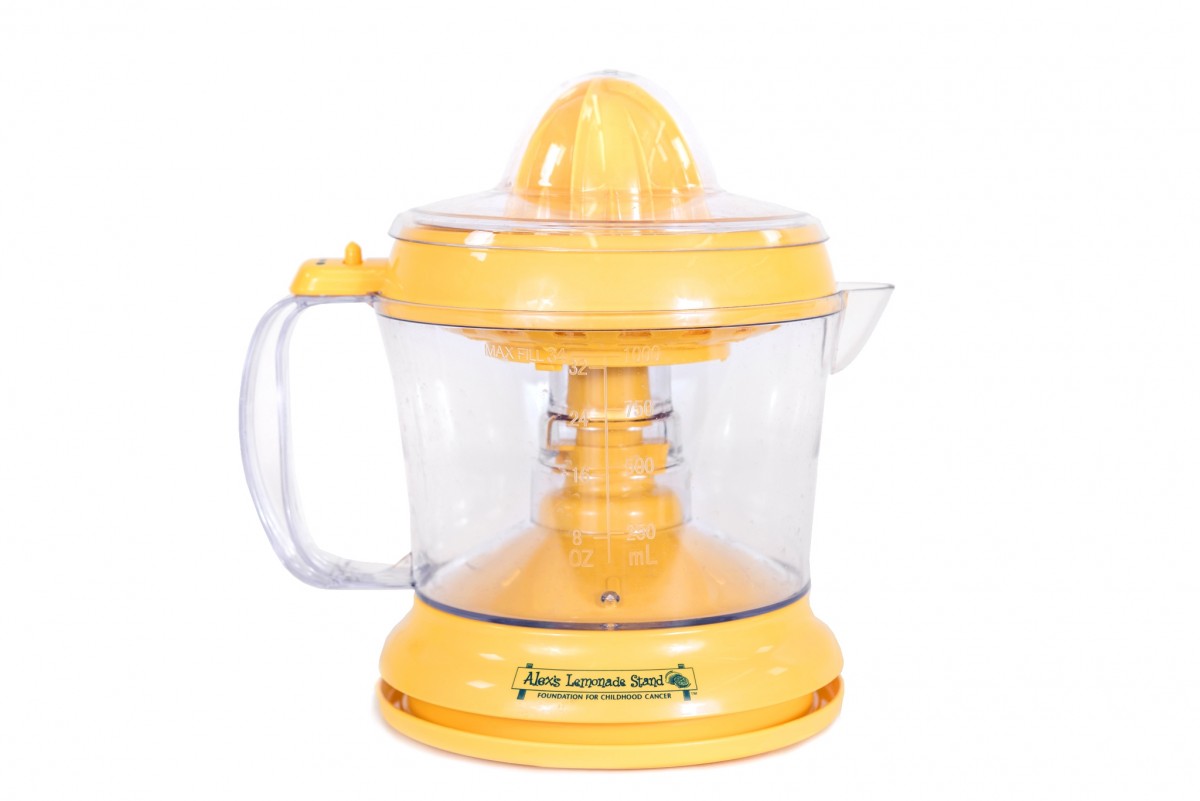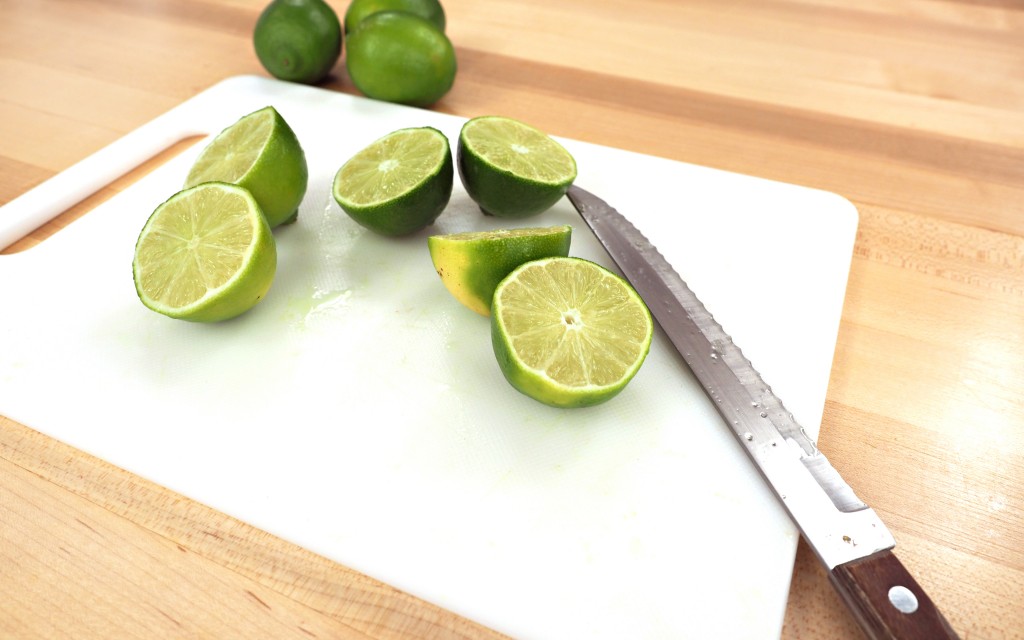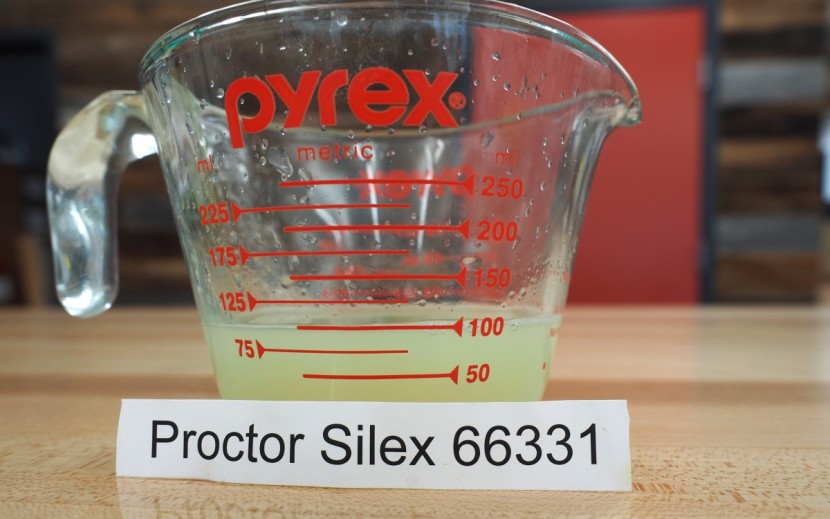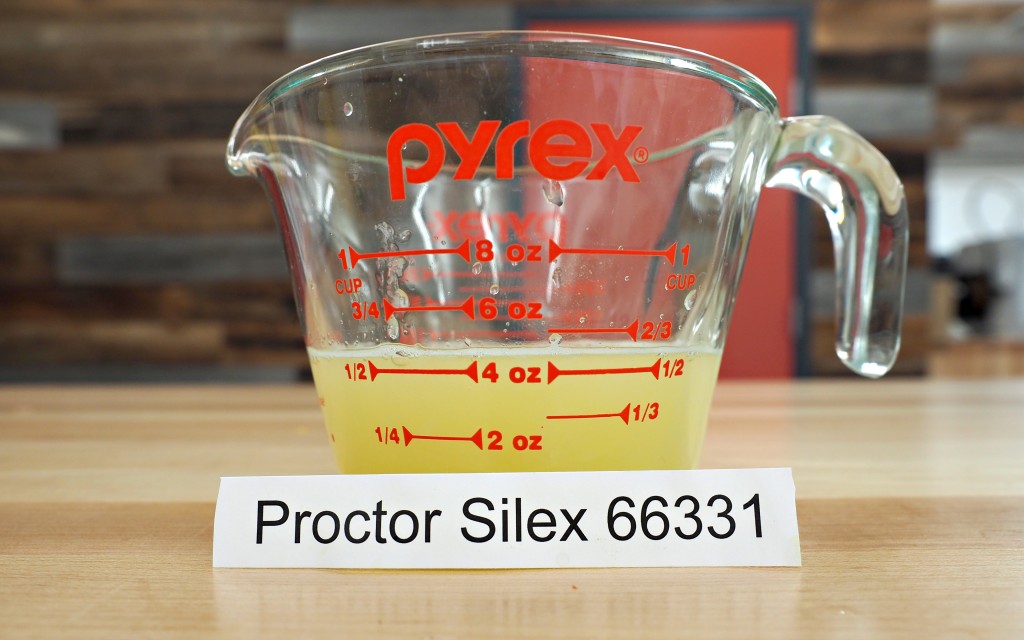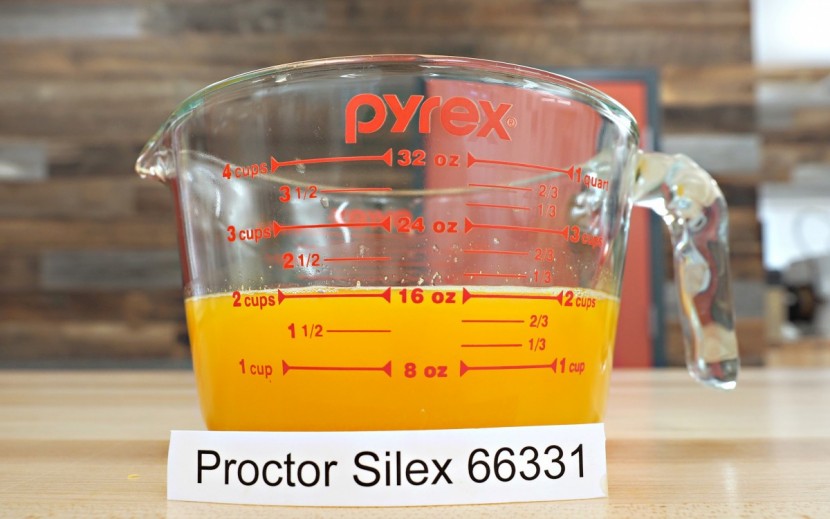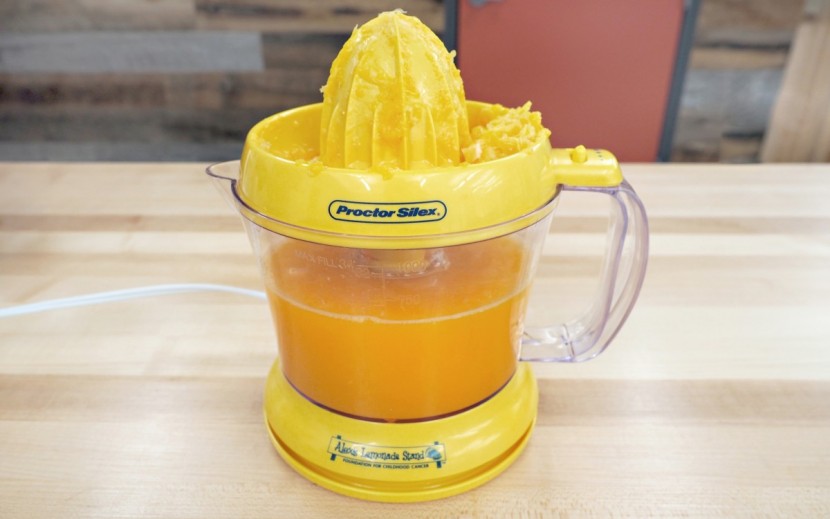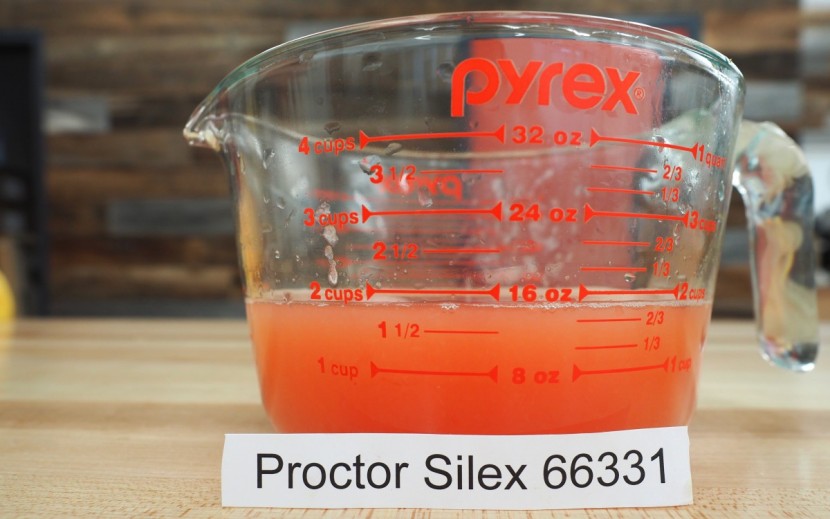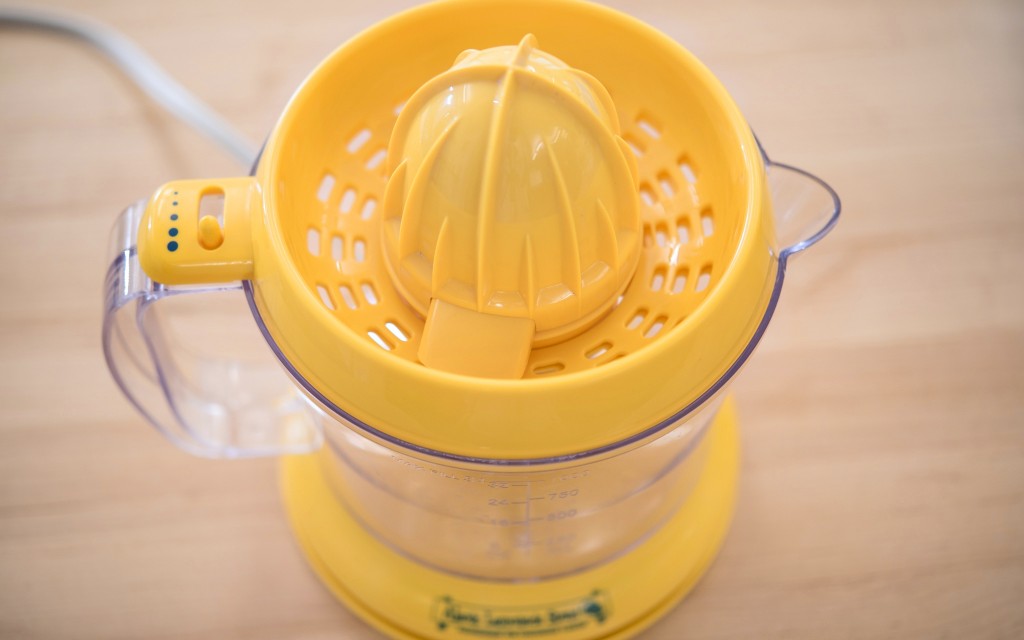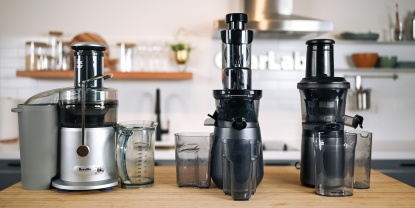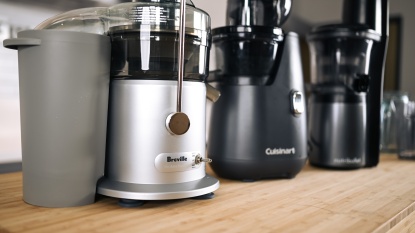Proctor Silex 66331 Alex's Lemonade Stand Review
Our Verdict
Our Analysis
It was quite difficult to pick between this model and the Black+Decker CJ825 to say which citrus juicer truly reigned supreme, but the Proctor Silex won out in the end, buoyed to the top by its much easier and quieter operation, as well as its slightly higher yield. However, we could easily see picking the Black+Decker if you found it on sale for much less than the Proctor Silex.
Performance Comparison
To pick the perfect citrus-only juicer, we looked at dozens of different models, then picked the three most promising products out there and compared their lemon, lime, orange, and grapefruit juicing skills side-by-side, as well as the ease at cleaning and operating each product. The results of the Proctor Silex are described below, explaining why it is our first choice for these products.
Limes
Starting off, we tested how well each of these products dealt with juicing three small limes. We juiced each lime on the low pulp setting, then filtered the juice to determine the yield. This juicer had the highest yield out of any of the products that we tested, generating 100 mL of pulp-free juice.
This was about 10 more mL than the Black+Decker produced and 15 mL more than the Cuisinart. We used the smaller juice reamer on the Proctor Silex, which fit the limes quite nicely and this juicer did a very good job of keeping the mess contained, unlike the Cuisinart CCJ-500.
Lemons
The performance of the Alex's Lemonade Stand citrus juicer did surprisingly poorly in our lemon juicing assessment, delivering the lowest yield of the entire group at around 135 mL of lemon juice after straining. The Black+Decker was the top producer at 150 mL, followed by the Cuisinart at 140 mL. Despite the lower yield, the Proctor Silex still only produced a minuscule amount of pulp and was no hassle at all to use.
Oranges
The performance of this juicer rebounded greatly when tasked with juicing oranges, again reclaiming the top spot in terms of yield. This juicer created just under 500 mL of juice from 3 medium-sized oranges. This was quite a bit better than the 475 mL of the Cuisinart CCJ-500 and the 425 mL of the Black+Decker.
However, it did create the most pulp out of any of the juicers, definitely requiring you to clean it out a bit more frequently than the other models if you are juicing a ton of oranges.
This pulp is all pretty much trapped by the built-in strainer, as we removed very little additional pulp when we strained the juice before calculating the yield.
Grapefruits
For our final juice challenge, we tested the juicing merits of each kitchen appliance with two large grapefruits. We used the large reamer on the Proctor Silex and it again claimed the top spot when it came to yield, but by a much smaller margin. This time, it only produced about 10 mL more of grapefruit juice than the other two products.
It also produced much less pulp this time, matching the Cuisinart and only generating a little bit more than the Black+Decker.
Ease of Cleaning
The Proctor Silex is also a breeze to clean, with the components all being safe for the top shelf of the dishwasher — minus the motorized base, of course! The pulp sieve can be a bit more of a hassle to remove than on the other products, but it isn't too bad once you get the hang of it.
Conclusion
If you are considering getting a citrus juicer instead of a full-size model, you should definitely make the Proctor Silex 66331 your first choice. It has great juice yields, is very convenient to use and clean, and they even donate a portion of your sale to childhood cancer research (at the time of writing). If you think you would rather have a full-size juicer for dealing with hard produce and leafy greens, check out the link below!


